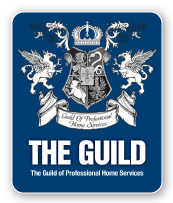

- # 1 Brokerage in Poteau
- Licensed for Arkansas
- Buy/sell homes
Buying a Home
Buying a home is probably the biggest investment you will make, with long-term financial ramifications. It calls for many informed decisions and for good advice from a real estate professional. When buying a home, you can learn from the knowledge and skill of a Real Estate Associate.
What can a Real Estate Associate do to help you buy the right home for you?
They will help you determine how much home you can actually afford. Often, they can suggest additional ways to accrue the down payment and explain alternative financing methods. They can also introduce you to a mortgage counselor and arrange to have you "pre-approved" which can improve your negotiating position and enable you to achieve your home-buying objectives faster and with less stress.
Providing client level services, they can work for you as a buyer's associate and help negotiate the best price and terms for you.
They will help you work out a realistic idea of the home best suited to your needs - size, style, features, location, accessibility to schools, transportation, shopping, and other personal preferences.
They have access to a listing of all available homes in the multi-list system, can evaluate them in terms of your needs and affordability, and will not waste your time showing you unsuitable homes.
They can often suggest simple, imaginative changes that could make a home more suitable for you and improve its utility and value.
They can supply information on real estate values, taxes, utility costs, municipal services and facilities, and may be aware of proposed zoning changes that could affect your decision to buy.
Although the law does not normally require an attorney to review documents or oversee real estate closings, they can provide you with a list of law practitioners to choose from if you would like to use the services of an attorney.
They can help familiarize you with the closing process and they will obtain closing figures in advance of closing for your review.
They can provide you with a list of qualified home inspectors, pest inspectors, surveyors, and help to coordinate inspection appointments.
Home Price Appreciation
How can I improve the value of my property?
Outside of a homeowner's control, the biggest factor is market conditions. Other important issues are:
condition of the property
specific home improvements
neighborhood stability and safety
The greatest rise in home prices occurs when the economy is strong and the number of home sales is increasing. Specific home improvements can increase the value above the cost of the improvements.
remodeled bathroom returns, 81 percent to the owner
bathroom addition, 89 percent
master bedroom suite, 82 percent
Remember, quality pays. Well-planned and well-executed remodeling jobs are a good investment while bad work seldom enhances value or livability.
The safety and security of a neighborhood can affect property values, too. If you live in a high-crime area, an organized community watch program not only will lower the crime rate but give home values a boost, too.
How can I increase the value of my property?
Specific home improvements can increase your property value above the cost of the improvements themselves, such as remodeling a kitchen, adding a bathroom, finishing a basement or upgrading landscaping. Just be sure that quality pays with remodeling. A bad remodeling job will do little to boost your property value.
If you live in a high-crime area, an organized community watch program not only will lower the crime rate but can enhance property values, too. It also helps to live in an area where other homeowners are upgrading their homes, which can help pull up your property value, too.
The bottom line is to measure the cost of any improvements you want to make against the overall values in your neighborhood. If you over improve for the neighborhood, you may not necessarily recover your costs or boost your property value significantly.
Will buying a bigger home increase my profit?
Consider these questions before making a choice between adding on to an existing home or moving up in the market to a bigger house:
How much money is available, either from cash reserves or through a home improvement loan, to remodel the current house?
How much additional space is required? Would the foundation support a second floor or does the lot have room to expand on the ground level?
What do local zoning and building ordinances permit?
How much equity already exists in the property?
Are there affordable properties for sale that would satisfy housing needs?
Ultimately, the decision should be based on individual needs, the extent of work involved and what will add the most value.
How do I find out how much my home is worth?
A comparative market analysis and an appraisal are the standard methods for determining a home's value.
Your real estate associate will be able to provide a comparative market analysis, an informal estimate of value based on comparable sales in the neighborhood. Be sure you get listing prices of current homes on the market as well as those that have sold. You also can research this yourself by checking on recent sales in public records. Be sure that you are researching properties that are similar in size, construction and location. This information is not only available at your local recorder's or assessor's office but also through private companies and on the Internet.
An appraisal, which generally costs $200 to $300 to perform, is a certified appraiser's opinion of the value of a home at any given time. Appraisers review numerous factors including recent comparable sales, location, square footage and construction quality.
What are the differences between market value and appraised value?
The appraised value of a house is a certified appraiser's opinion of the worth of a home at a given point in time. Lenders require appraisals as part of the loan application process; fees range from $200 to $300.
Market value is what price the house will bring at a given point in time. A comparative market analysis is an informal estimate of market value, based on sales of comparable properties, performed by a real estate associate. Either an appraisal or a comparative market analysis is the most accurate way to determine what your home is worth.
 home
home
 contact
contact
 About Us
About Us
 Services
Services
 Poteauok Homemove
Poteauok Homemove


